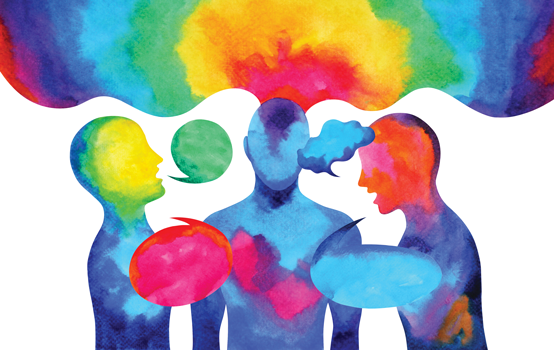
In this module we cover the principles of sociolinguistic theory. We look at how language is actually used, how people feel about it - how the two are often opposed - and how the structure of language interacts with both. We cover language attitudes and linguistic ideologies; how they emerge, how they affect language behaviour and society. We also explore the relationship between language variation, language change and social (social class, age, sex, ethnicity, geography, etc.), contextual (style, audience, topic) and linguistic (phonological, morphological, syntactic and discourse) factors. We see how social identity illuminates variation in language and learn about such topics and regional and social dialects, language variation and change, language attitudes, and social meaning.
- Module Supervisor: Ella Jeffries